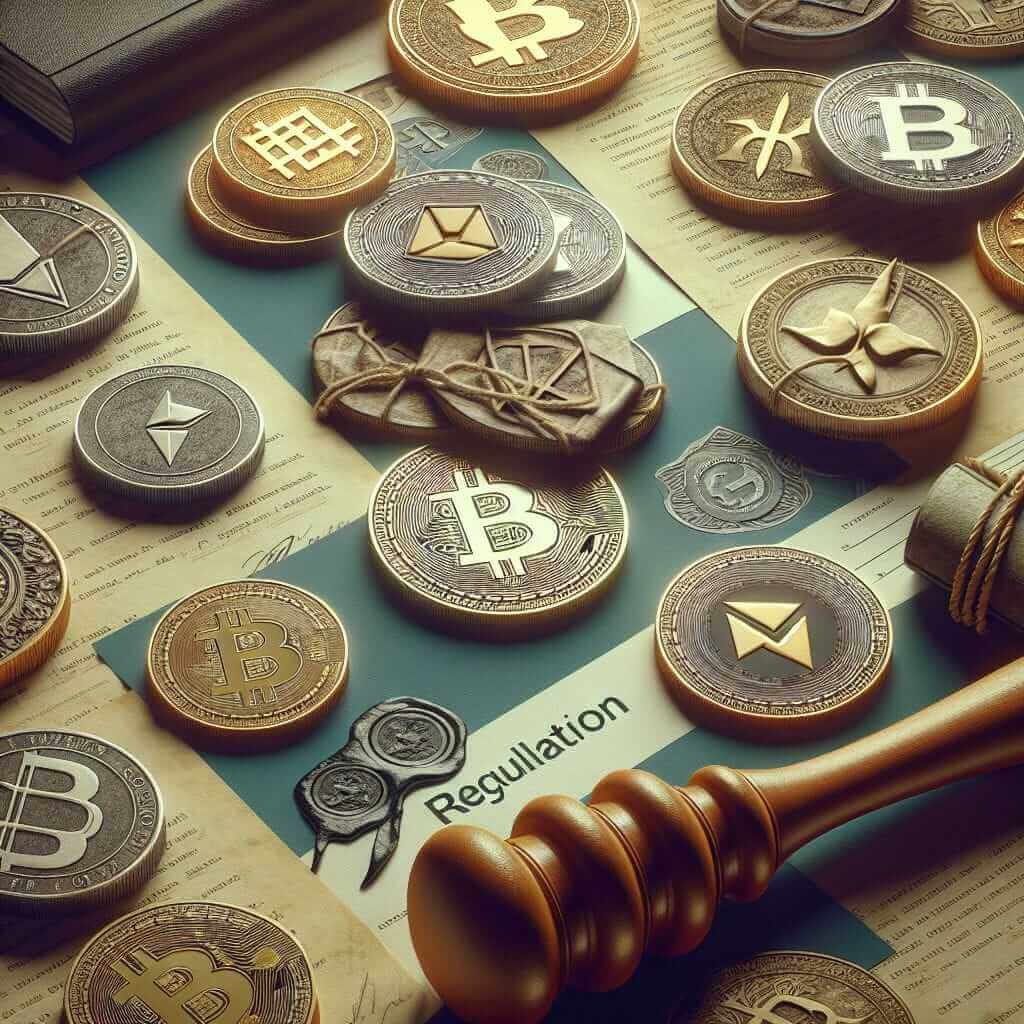The Reading section of the IELTS exam is designed to assess a wide range of reading skills, including skimming, understanding the main idea, reading for detail, understanding logical argument, recognizing writers’ opinions, attitudes, purpose, and following an argument’s development. In recent years, topical issues such as the regulation of cryptocurrency markets have become increasingly relevant in the exam. Given the highly dynamic nature of the subject, this can be attributed to the rapid growth of the cryptocurrency industry and its implications on global financial systems. Understanding the complexities of this subject will not only help you ace your IELTS Reading test but also give you insights into significant contemporary issues.
Analyzing past IELTS reading materials, we find that subjects involving technological advancements and their societal impacts often recur. Therefore, it’s prudent to familiarize yourself with such topics.

Main Content
Practice Reading Passage on Cryptocurrency Regulation
Regulating Cryptocurrency Markets: Challenges and Implications
Cryptocurrencies, digital or virtual currencies that use cryptography for security, have gained immense popularity in recent years. Bitcoin, Ethereum, and many other cryptocurrencies are now widely used for a variety of transactions. However, with this rise in popularity comes a plethora of challenges related to regulation. Governments and financial authorities worldwide are grappling with the complexities of this nascent market. Let’s delve into some of the key challenges associated with regulating cryptocurrency markets.
One of the foremost challenges is the decentralized nature of cryptocurrencies. Unlike traditional currencies, which are issued and regulated by central banks, cryptocurrencies operate on decentralized platforms like blockchain technology. This makes it difficult for any single authority to exert control over the currency, leading to regulatory gaps and enforcement issues.
Moreover, the anonymity and pseudonymity provided by cryptocurrencies have made them a favorite among those engaging in illegal activities, such as money laundering, tax evasion, and funding terrorism. These activities pose significant risks to national and global security, creating an urgent need for regulatory frameworks that can effectively address these risks.
The technological complexities of cryptocurrencies also present a notable challenge. Regulatory authorities often lack the technical expertise required to understand and regulate this advanced technology adequately. The rapid pace of innovation in the sector further complicates matters, making it hard for regulations to keep pace with technological advancements.
Another critical issue is the lack of standardized regulatory approaches across countries. While some countries have embraced cryptocurrencies and actively worked on creating a regulatory framework, others have outright banned them. This inconsistency can lead to regulatory arbitrage, where businesses and individuals exploit gaps between different regulatory environments to circumvent rules and regulations.
Lastly, the question of consumer protection looms large. Cryptocurrencies’ price volatility can lead to significant financial losses for uninformed or inexperienced investors. Thus, creating awareness and providing education about the risks involved in cryptocurrency trading is imperative for any regulatory framework.
Practice Questions
Multiple Choice
-
What is a primary challenge in regulating cryptocurrencies, according to the passage?
- A) High transaction fees
- B) Decentralization
- C) Lack of public interest
- D) Slow transaction speed
-
Why are cryptocurrencies popular among criminals?
- A) High earning potential
- B) Widespread acceptance
- C) Anonymity and pseudonymity
- D) Low transaction costs
True/False/Not Given
-
Regulatory authorities have sufficient technical expertise to regulate cryptocurrencies.
- True
- False
- Not Given
-
Some countries have fully banned the use of cryptocurrencies.
- True
- False
- Not Given
Matching Headings
Match the correct heading to each paragraph:
A. Technological Complexities
B. Consumer Protection
C. Regulatory Arbitrage
D. Decentralized Nature
-
Paragraph 2 ___
-
Paragraph 3 ___
-
Paragraph 4 ___
Answer Key and Explanations
Multiple Choice
- B. Decentralization – The passage emphasizes the decentralized nature of cryptocurrencies as a key regulatory challenge.
- C. Anonymity and pseudonymity – Criminal activities such as money laundering and tax evasion use cryptocurrencies for their anonymity.
True/False/Not Given
- False – The passage clearly states that regulatory authorities often lack technical expertise.
- True – The passage mentions that some countries have outright banned cryptocurrencies.
Matching Headings
- D. Decentralized Nature – Paragraph 2 focuses on the decentralized nature of cryptocurrencies.
- A. Technological Complexities – Paragraph 3 discusses the technological complexities involved.
- C. Regulatory Arbitrage – Paragraph 4 examines inconsistent regulatory approaches across different countries.
Common Mistakes
- Misunderstanding Decentralization: Many students confuse decentralization with distributed computing. It’s crucial to understand that decentralization in cryptocurrency means there is no central authority.
- Ignoring Technological Aspects: Overlooking the technological intricacies can result in misunderstandings. Ensure you comprehend the fundamentals of blockchain and other underlying technologies.
Vocabulary
- Cryptography (n): /krɪpˈtɒɡrəfi/ – The art of writing or solving codes
- Decentralization (n): /diːˌsentrəlaɪˈzeɪʃn/ – The transfer of control from a central authority to distributed entities
- Anonymity (n): /ˌænəˈnɪməti/ – The condition of being anonymous
- Volatility (n): /ˌvɒləˈtɪləti/ – Liability to change rapidly and unpredictably, especially for the worse
Grammar Focus
- Passive Voice: Used to emphasize the action rather than the doer. For example: “Regulatory frameworks need to be created.”
- Relative Clauses: Essential for adding extra information. For example: “Regulatory authorities, who often lack technical expertise, find it challenging.”
Conclusion
Achieving a high score in the IELTS Reading section requires comprehensive preparation, understanding contemporary issues, and developing strong reading skills. By preparing with relevant practice materials, such as the passage on “What are the challenges of regulating cryptocurrency markets?”, and focusing on common mistakes, vocabulary, and grammar points, you can improve your reading comprehension skills significantly.
Good luck with your studies, and remember, persistence and practice are key to your success!